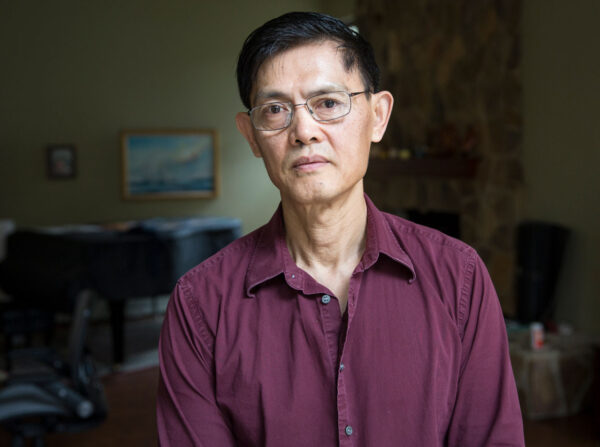Chinese American Professor, Falsely Painted As A Spy For China, Moves Forward With Appeal Against FBI
Professor Xiaoxing Xi’s Appeal Comes After a Federal Court Wrongly Dismissed His Claims Challenging the FBI’s Baseless Arrest and Searches
NEW YORK — Professor Xiaoxing Xi and his family today filed the opening brief in their appeal against the U.S. government and the FBI agent involved in wrongly investigating and prosecuting him. In May 2015, armed FBI agents stormed into Professor Xi’s home outside Philadelphia and arrested him in front of his wife and daughters for supposedly sharing sensitive technology with scientists in China. The government cast Professor Xi, who is a naturalized U.S. citizen and a world-renowned expert on superconductor technologies based at Temple University, as a technological spy. It threatened him with 80 years in prison and $1 million in fines. But the government’s accusations were false and the charges against the professor were dropped four months later.
In the lawsuit on appeal, the Xi family have asked the court to award damages and to declare that the defendants violated Professor Xi's Fourth and Fifth Amendment rights.
"We have clear evidence that the FBI violated our constitutional rights that day, and years later we are still dealing with the trauma of this ordeal,” said Xiaoxing Xi. “If we can’t hold the government accountable now, there will be little to stop the government from profiling other Asian American scientists and ruining more innocent people’s lives in the future.”
This appeal comes after a lower court dismissed nine of Professor Xi’s ten claims in April 2021, including claims that the FBI made knowingly or recklessly false statements in support of its investigation and prosecution of him. The court also dismissed Professor Xi’s claim that his arrest was discriminatory and rooted in the same bias that has led the FBI and the Justice Department to wrongly prosecute several other innocent Americans of Chinese descent. The lower court has not yet ruled on the final claim in the case, which challenges the government’s surveillance of Professor Xi and his family.
Although the charges were dropped, the costs to Professor Xi and his family were significant. After the agents took Professor Xi into custody, he was subjected to DNA sampling, a mug shot, fingerprinting, interrogation, and a strip search. The family’s house and personal belongings were searched from top to bottom. Professor Xi was placed on administrative leave, suspended from his position as the interim chair of the Temple Physics Department, denied access to his lab, and had to pay substantial legal fees to defend himself.
“We still live in fear of FBI intimidation and surveillance. It’s been years and they still haven’t provided any explanation or recourse for the devastation they caused,” said Joyce Xi, Professor Xi’s daughter. “We deserve answers.”
The complaint describes how the unlawful investigation and prosecution of Professor Xi is part of a broader pattern of government discrimination against Chinese American scientists and academics. The same profiling and discrimination is at the heart of the so-called 'China Initiative,’ which was launched by the Trump administration in 2018, and continues to this day under the Biden administration.
“Until the Biden administration abandons the China Initiative and its discriminatory profiling of Chinese American scientists, we will continue to see baseless prosecutions like Professor Xi’s,” said Patrick Toomey, senior staff attorney with the American Civil Liberties Union’s National Security Project. “This biased approach has led to failed prosecutions around the country, with horrific consequences for the lives of those affected.”
“Professor Xi and his family are entitled to judicial relief for the clear violations of their basic constitutional rights,” said David Rudovsky, partner at Kairys, Rudovsky, Messing, Feinberg & Lin LLP. “We believe that the courts have a fundamental duty to provide remedies for false prosecutions of innocent persons.”
Professor Xi is represented by the ACLU, the civil rights law firm Kairys, Rudovsky, Messing, Feinberg & Lin LLP, and Jonathan Hafetz.


